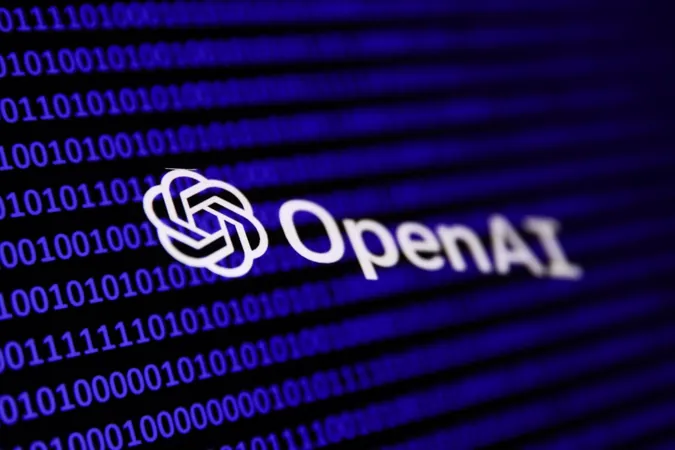
Shocking Accusations Against OpenAI: Are They Using Unauthorized Paywalled Content?
2025-04-01
Author: Ling
Introduction
In a development that could have serious implications for the AI industry, OpenAI has come under fire for allegedly training its AI models on paywalled content without proper licensing. A new report from an AI watchdog organization raises the alarming claim that the tech giant leveraged books from O'Reilly Media, which remain behind a paywall, to enhance its already sophisticated AI capabilities.
How AI Models Are Trained
AI models, like OpenAI's GPT series, function as advanced prediction engines. They are trained on vast datasets that include books, films, and other media to learn patterns and generate responses. When users interact with these models, they often receive what seems like novel content, yet these outputs are derived from knowledge distilled during training rather than original creation.
Concerns About Unauthorized Use
While a few AI research entities have started to utilize synthetic data for training, the majority still rely on real-world sources to avoid performance pitfalls associated with purely artificial datasets. This raises concern as models like GPT-4o, the latest available variant in ChatGPT, may be relying on unauthorized materials, specifically from O'Reilly, which is not in a licensing agreement with OpenAI, according to the recent paper.
Findings of the Study
The authors of this study are part of the AI Disclosures Project, a nonprofit established with the intent of promoting transparency in AI data usage. Their investigation suggests that GPT-4o shows a significantly greater recognition of content from paywalled O'Reilly books compared to its predecessor, GPT-3.5 Turbo, which seems to align more with publicly available literature.
Methodology of the Research
Utilizing a methodology known as DE-COP, which serves as a “membership inference attack,” the researchers assessed the likelihood of the AI having seen specific excerpts from 34 O'Reilly titles. The results were striking: GPT-4o exhibited a remarkable recognition of these non-public resources, indicating it may have incorporated them during its training process.
Complexities and Limitations
It's critical to note that the study authors highlight the complexities of their findings. While the evidence suggests a pattern, they caution that their methods are not without flaws. They also acknowledge the possibility that the excerpts could have been introduced to the AI through user interactions rather than direct training.
Unanswered Questions
Complicating matters, the research doesn’t account for OpenAI's newest models, which could differ in their training data, leaving an unanswered question about how extensive the influence of O'Reilly's content might be on them.
OpenAI's Efforts and Current Status
OpenAI has been actively seeking high-quality datasets, often engaging experts from various fields, including journalism and academia, to refine its model outputs. While the company does maintain licensing agreements with a variety of content publishers, the emerging claims from the O'Reilly paper paint a troubling picture amidst ongoing legal challenges the organization faces related to copyright issues.
Conclusion
As the debate over copyright and AI training escalates, many in the tech community are left wondering how OpenAI will navigate these accusations and whether regulatory scrutiny will increase as a result. OpenAI has yet to provide a response regarding these recent allegations, leaving the industry on high alert for developments. Stay tuned, as this story unfolds—could this lead to a major shift in how AI companies operate in relation to copyright laws?



 Brasil (PT)
Brasil (PT)
 Canada (EN)
Canada (EN)
 Chile (ES)
Chile (ES)
 Česko (CS)
Česko (CS)
 대한민국 (KO)
대한민국 (KO)
 España (ES)
España (ES)
 France (FR)
France (FR)
 Hong Kong (EN)
Hong Kong (EN)
 Italia (IT)
Italia (IT)
 日本 (JA)
日本 (JA)
 Magyarország (HU)
Magyarország (HU)
 Norge (NO)
Norge (NO)
 Polska (PL)
Polska (PL)
 Schweiz (DE)
Schweiz (DE)
 Singapore (EN)
Singapore (EN)
 Sverige (SV)
Sverige (SV)
 Suomi (FI)
Suomi (FI)
 Türkiye (TR)
Türkiye (TR)
 الإمارات العربية المتحدة (AR)
الإمارات العربية المتحدة (AR)